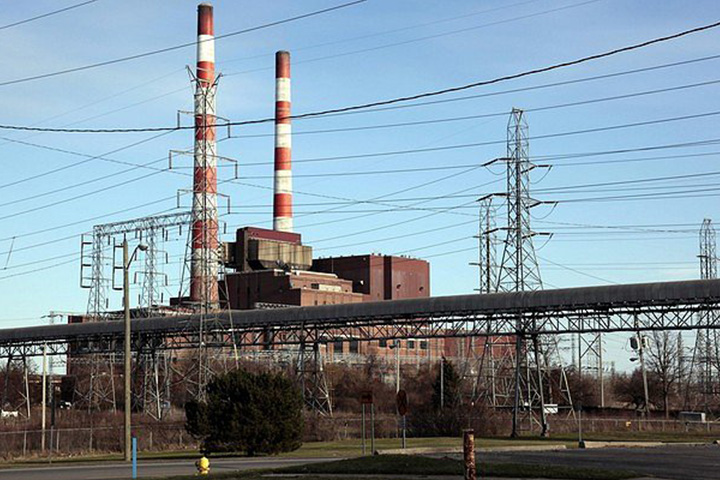The Cumulative Burden of Air Pollution Health Impacts & Energy Inefficiency in Southeast Michigan
The Cumulative Burden of Air Pollution Health Impacts & Energy Inefficiency in Southeast Michigan
The Cumulative Burden of Air Pollution Health Impacts & Energy Inefficiency in Southeast Michigan
Program: Catalyst Grants
Program details » | All Catalyst Grants projects »

Photo credit: Wikipedia
Project Team
Carina Gronlund — Institute for Social Research (PI)
Tony Reames —School for Environment and Sustainability
Michelle Martinez — Michigan Environmental Justice Coalition
External Partner: Michigan Environmental Justice Coaltion
Project Summary
In July 2019, the Michigan Public Service Commission (MPSC) began evaluating a new Integrated Resource Plan (IRP) from one of the state’s largest energy providers, DTE Energy. The IRP included a new energy-mix scenario of coal, natural gas, and solar that would reduce DTE’s use of coal, but also proposed rate changes that would have raised rates on households using the least amount of energy.
To inform the MPSC’s decision and determine if a more aggressive phasing out of coal plants was necessary, U-M researchers partnered with the Michigan Environmental Justice Coalition and Natural Resources Defence Council, with funding from the University of Michigan’s Center on Lifestage Environmental Exposures and Disease (M-LEEaD) and the Graham Sustainability Institute to perform a health impact assessment - estimating the health costs for different energy-mix and rate scenarios.
Combining data on health risks, fuel poverty (the inability to adequately cool or heat homes or address other basic household energy demands), and disparities in exposure and vulnerability, the team produced a robust analysis that demonstrated where public health risks from DTE’s facilities were greatest. Their preliminary findings estimated a total health burden of $302 million annually from DTE’s air pollution in Detroit and the surrounding counties. Moreover, it found that the financial and health costs of energy production fall most heavily on low to moderate-income neighborhoods, which are disproportionately populated by African-American and Latinx residents.
This project and its findings have implications for energy justice or the unequal distribution of energy benefits and costs of generation. The group outlined several recommendations to address existing health disparities, including that health impact and affordability assessments should be required by law and be employed to inform future IRP decisions. What’s more, due to the activism led by the Michigan Environmental Justice Coalition, the MPSC approved DTE’s rate-structure change at a rate 47% lower than initially proposed.
This project received a $10,000 Catalyst Grant in 2019. Additional project support provided M-LEEaD.